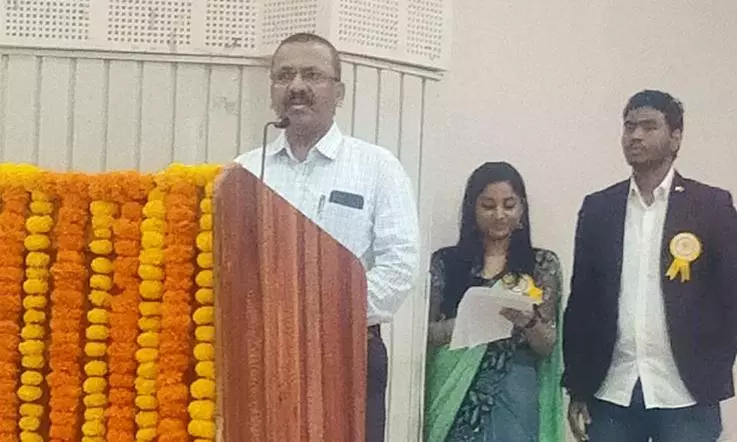Rising MDR-TB Cases in Telangana Prompt Concerns Over Testing and Treatment

Hyderabad: The cases of multi-drug-resistant tuberculosis (MDR-TB) are rising in the state, according to data with the TB Cell. Officials claimed that increased testing had resulted in a larger number of cases coming to light, a contention that experts doubted.
In 2023, the number of patients diagnosed with MDR-TB was 1,501, up from 726 in 2016, 961 in 2017 and 1,123 in 2018. In the first six months of this year, the state logged 281 MDR-TB cases.
"The cases of MDR-TB have increased in the state but likewise we have also increased testing. The effectiveness of treatment has increased from 63 per cent in 2022 to 75 per cent in 2023. In 2024, it is 78 per cent," said Dr A. Rajesham, joint director of the state's TB Cell.
Experts said the current number of MDR-TB patients was slightly higher, at 1,250, in the state, of whom 250 were in Hyderabad. Data indicated that the testing had not increased significantly as much as MDR-TB cases had risen.
The number of notified patients with TB in Telangana in 2018 was 39,232, as per the India TB Report. In 2024, it stood at 40,000.
Data shared by TB Cell put the number of presumptive MDR-TB tested patients at 20,894 in 2022, 39,049 in 2023 and 7,993 in the first quarter of 2024. The numbers did not show any major increase in testing since 2018.
"MDR-TB is identified when patients stop responding to drugs. If they are found to be resistant to anti-TB drugs, they are put on a prolonged treatment plan. The treatment rate for MDR-TB in the last 10 years has increased significantly, with the effectiveness of drugs now reaching to 78 per cent," said Dr Mahmood Khan, superintendent, of Government General and Chest Hospital.
However, the drugs are extremely costly and come with serious side effects. The treatment is prolonged, running between nine and 20 months. "Moreover, the effectiveness of treatment for MDR-TB is not at par with TB," Dr Khan said.
According to Dr Rajesham, an uninterrupted supply of drugs and diagnostics was one of the challenges that doctors faced while treating MDR-TB patients. The other major challenge was the long duration of the treatment.
"Most patients fail to follow up with the treatment as it is a long, meticulous process with follow-ups by various departments. The patient, at least for the first two weeks, has to be admitted to a tertiary care hospital. After that, the patient must be kept at home, in isolation from children and other at-risk family members. Most likely it is seen that if someone in a family has TB, another member will develop MDR-TB," said a pulmonologist from the ESIC Hospital.
Long journey
Multi drug-resistant tuberculosis (MDR-TB) usually occurs when the bacteria - Mycobacterium tuberculosis - develops resistance to potent anti-TB drugs.
This resistance makes MDR-TB more challenging to treat, requiring the use of second-line drugs that are often less effective, more toxic, and more expensive.
MDR-TB develops due to improper use of antibiotics.
The cost of treatment, up to Rs 2 lakh, is covered by the government through the National Tuberculosis Elimination Plan.
Last year, a shortage in the supply of rifampicin, linezolid, clofazimine, and cycloserine, crucial for treating MDR-TB, was noted.
Treatment is prolonged, and many patients often drop out.

